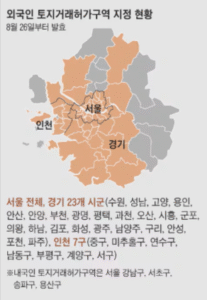For foreigners beginning their life in Korea, one of the first systems you will encounter is insurance. Unexpected illness or accidents can happen anytime, and the burden often feels heavier in a new country. Korea has a relatively well-established insurance system that helps manage medical expenses and everyday risks. However, the structure is not simple, so it may feel complicated for newcomers. Insurance in Korea can be broadly divided into National Health Insurance (NHI) and Private Insurance. These two systems serve different roles and offer different coverage but complement each other.
National Health Insurance: Basic Medical Coverage
National Health Insurance is a government system designed to provide basic medical services to everyone living in Korea. Foreign residents can also enroll if they meet certain requirements, and those who legally stay for more than six months are required to join. The monthly premium depends on your income or employment status, but overall, it greatly reduces the financial burden of medical care. For example, outpatient treatment, hospitalization, and surgery costs are significantly reduced, making healthcare more affordable.
However, NHI does not cover all services. Cosmetic surgery, certain dental treatments, expensive new drugs, and advanced medical tests are considered non-covered items and must be paid fully out of pocket. In addition, hospital room choices are limited, and private or single rooms come with extra costs. Therefore, while NHI provides a basic safety net, there are limits for those who want broader protection and more options.
Private Insurance: Supplementing What NHI Cannot Cover
Private insurance exists to fill the gaps of NHI. Companies such as Meritz Fire & Marine Insurance provide a wide range of products available to foreigners, offering protection against risks that extend beyond medical care.
For example, major illnesses like cancer, heart disease, or cerebrovascular disease can generate medical bills of tens of millions of won. Private insurance covers costs that NHI does not fully cover. There are also various products such as auto insurance, driver’s insurance, fire insurance, children’s insurance, pension, and savings plans. These options allow foreigners to tailor their protection to their specific situation. Auto insurance is mandatory if you drive in Korea, children’s insurance helps cover both health and education, and long-term residents may benefit from pension or savings plans for financial stability.
The Meaning for Foreign Residents
National Health Insurance and private insurance should not be seen as competitors but as complementary. NHI provides the essential safety net for basic medical expenses, while private insurance builds a stronger layer of protection on top. During your stay in Korea, unexpected accidents or serious illnesses can occur, and in such cases, private insurance can significantly reduce the financial burden.
Foreign residents may also face challenges with Korea’s healthcare procedures, such as filing claims or navigating the system. Multilingual support and efficient claim processing offered by private insurers can be extremely helpful. Meritz, for example, provides foreigner-friendly services and a trusted claims system, with stability and credibility recognized by international credit rating agencies. This adds reassurance for foreign residents seeking reliable insurance options.
Conclusion: A Vital Part of Stable Life in Korea
In summary, Korea’s insurance system is structured so that National Health Insurance provides the foundation, while private insurance fills the gaps. For foreigners living in Korea long-term, understanding and using both systems is essential. NHI ensures the basic safety net, while private insurance extends protection across broader aspects of life. Choosing a reliable private insurer such as Meritz can make your life in Korea safer, more secure, and more stable.








